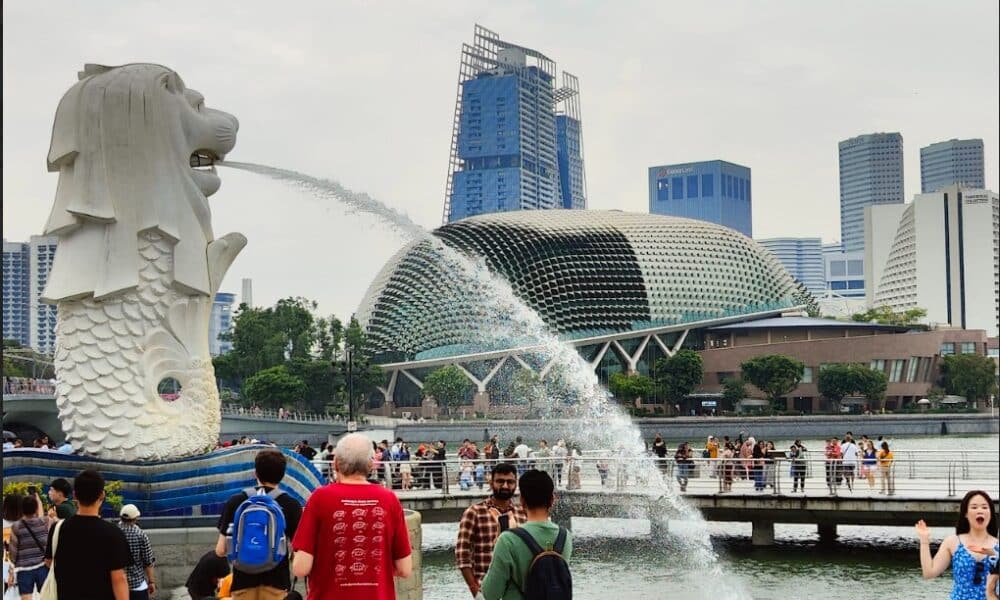SINGAPORE: Singapore ranked as the happiest country in Asia for the second consecutive year, as revealed by the 2024 World Happiness Report released on Wednesday (20 March).
The other countries listed in descending order, are Taiwan, Japan, South Korea, the Philippines, Vietnam, Thailand, Malaysia, China, and Mongolia.
Among the 143 places surveyed for the study, Singapore claimed the 30th spot.
Finland leads the rankings this year, closely followed by Denmark and Iceland.

The World Happiness Report is a collaborative effort involving prominent researchers and wellbeing scientists globally.
The happiness rankings are based on data from the Gallup World Poll, which collects assessments of quality of life over three years (2021-2023) from various populations.
The rankings are derived from responses to the primary life evaluation question posed in the poll, known as the ‘Cantril Ladder’. Respondents are prompted to envision a ladder, where a rating of 10 represents the best possible life for them, and a rating of 0 signifies the worst possible life.
They are then asked to assess their current lives on this scale ranging from 0 to 10.
According to a statement by the World Happiness Report, interdisciplinary experts from fields such as economics, psychology, and sociology analyze factors such as GDP, life expectancy, social support, freedom, generosity, and perceptions of corruption to explain variations across countries and over time.
“These factors help to explain the differences across nations, while the rankings themselves are based only on the answers people give when asked to rate their own lives, ” said the statement.
As reported by CNBC, Shun Wang, co-author and editor of the 2024 World Happiness Report, highlighted Singapore’s exceptional performance in GDP per capita, ranking among the highest in their dataset.
He also emphasized Singapore’s remarkable record in terms of perceived corruption, which is the lowest among all countries surveyed, surpassing even Denmark and Norway.
“That means Singapore’s government is really clean and their people really have a very low perception of corruption … even lower, you know, than Denmark or Norway,” Wang added.
Jan-Emmanuel De Neve, Director of the Wellbeing Research Centre at Oxford University and editor of the report praised Singapore’s achievement in promoting healthy life expectancy.
However, despite these strengths, Singapore ranks lower in perceived social support, freedom to make life choices and generosity.
“Singapore is punching below its weight,” said De Neve. “Given all the objective indicators about Singapore, you’d expect Singapore to be in the top 20 of the World Happiness Report.”
“I would love to challenge the Singaporean government and the people of Singapore to find ways to leverage the extraordinary city-state that they’ve created into ways of improving quality of life as people experience it,” De Neve said.
Declining happiness trends across age groups in Southeast Asia
The report also observed a declining trend in happiness across age groups in Southeast Asian countries, with Singapore contributing significantly to this pattern.
Additionally, it noted a gender difference favouring young females in these countries, with Singapore having the largest impact on this trend.
Contrary to this trend, countries like Norway, Sweden, Germany, France, the United Kingdom, and Spain are witnessing increased happiness among the older population compared to the younger generation, while Portugal and Greece exhibit the opposite pattern.
For the first time, the report provides separate rankings by age group, revealing significant variations from the overall rankings.
Notably, Lithuania ranks highest for children and young people under 30, while Denmark emerges as the world’s happiest nation for those aged 60 and older.
Furthermore, the United States of America has dropped out of the top 20 for the first time since the inception of the World Happiness Report in 2012, primarily due to a substantial decline in the well-being of Americans under 30.

